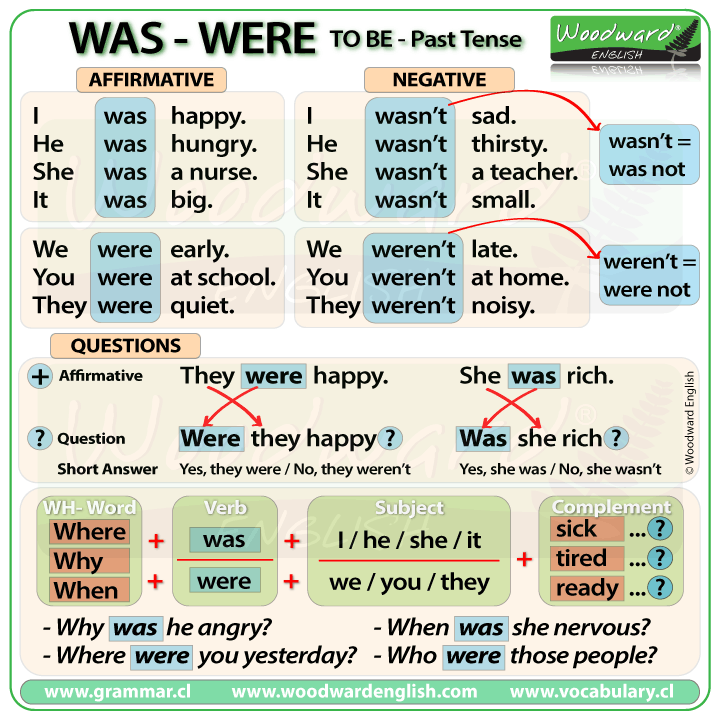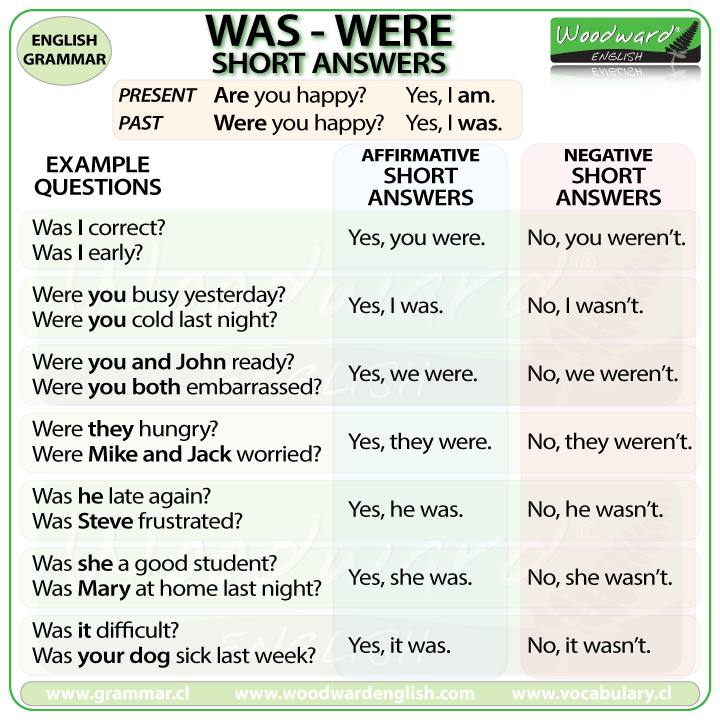SIMPLE PAST
The simple past tense, sometimes called the preterite, is used to talk about a completed action in a time before now. The simple past is the basic form of past tense in English. The time of the action can be in the recent past or the distant past and action duration is not important.

PAST TENSE
It's similar to the present simple because it has different rules for the verb 'be', which becomes 'was' or 'were':


The simple past tense, sometimes called the preterite, is used to talk about a completed action in a time before now. The simple past is the basic form of past tense in English. The time of the action can be in the recent past or the distant past and action duration is not important.
We use the past tense to talk about:
- something that happened once in the past:
I met my wife in 1983.
We went to Spain for our holidays.
They got home very late last night.
We went to Spain for our holidays.
They got home very late last night.
- something that happened again and again in the past:
When I was a boy I walked a mile to school every day.
We swam a lot while we were on holiday.
They always enjoyed visiting their friends.
We swam a lot while we were on holiday.
They always enjoyed visiting their friends.
- something that was true for some time in the past:
I lived abroad for ten years.
He enjoyed being a student.
She played a lot of tennis when she was younger.
He enjoyed being a student.
She played a lot of tennis when she was younger.
- we often use phrases with ago with the past tense:
I met my wife a long time ago.
Questions and negatives
We use did to make questions with the past tense:
When did you meet your wife?
Where did you go for your holidays?
Did she play tennis when she was younger?
Did you live abroad?
Where did you go for your holidays?
Did she play tennis when she was younger?
Did you live abroad?
But look at these questions:
Who discovered penicillin?
Who wrote Don Quixote?
Who wrote Don Quixote?
We use didn’t (did not) to make negatives with the past tense:
They didn’t go to Spain this year.
We didn’t get home until very late last night.
I didn’t see you yesterday.
We didn’t get home until very late last night.
I didn’t see you yesterday.

- https://www.youtube.com/watch?v=uxg75mOm9ek
It's similar to the present simple because it has different rules for the verb 'be', which becomes 'was' or 'were':
|
| I was cold |
| you were tired |
| he was in the garden |
|
|
| I was not sleepy | I wasn't sleepy |
| you were not on the bus | you weren't on the bus |
| he was not at school | he wasn't at school |
| she was not beautiful | she wasn't beautiful |
To make a question, just like the present simple, we change the position of 'was / were' and the subject.
Here are the past simple 'yes / no' questions with 'be':
|
| was I sleepy? |
| were you late? |
| was he at the cinema? |
| was she kind? |
And the 'wh' questions with 'be' (the question word just goes at the beginning, everything else is the same):
|
| why was I sleepy? |
| where were you? |
| when was he at the cinema? |
| how was she? |


- https://www.youtube.com/watch?v=0Fno_m7b93Mhttps://www.youtube.com/watch?v=0Fno_m7b93M

Comentarios
Publicar un comentario